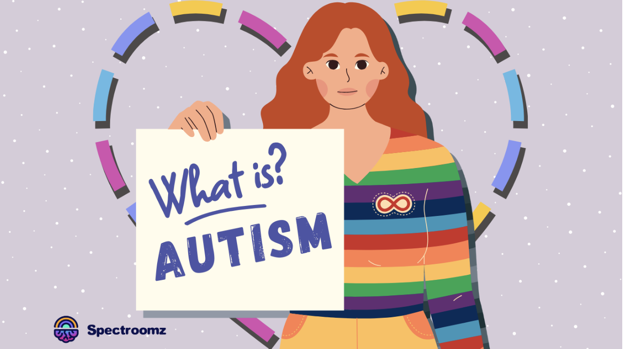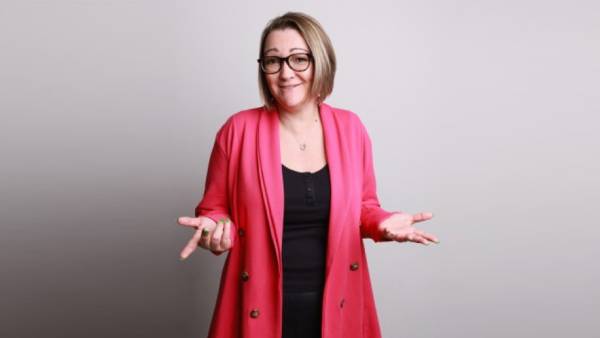About Spectroomz - We Help Neurodivergents folks Get Qualified To More Work From Home Jobs. ?By: Vanessa BlanchardThis article is part of an ongoing series where we define various important terms in the Autistic community. You can find the...

About Spectroomz - We Help Neurodivergents folks Get Qualified To More Work From Home Jobs. ?
By: Vanessa Blanchard
This article is part of an ongoing series where we define various important terms in the Autistic community. You can find the original longform article that started this series here.
Autism and Autism Spectrum Disorder
Autism, sometimes known as Autism Spectrum Disorder (ASD), is a neurological condition (or configuration) that impacts areas of a person’s life in many ways:
You may develop at a different pace than your peers. Likewise, your development might seem “uneven” with some skills developing very quickly and others lagging behind.
You may struggle with motor skills, coordination, and speech development. These struggles may increase or decrease based on your mental and physical health.
You may have strong interests, specializing in a few topics very deeply over long periods of time
You may find social interactions are uneven with others (especially non-autistic folks) and that people seem to treat you worse than your peers
You may be sensitive to certain stimulation: lights, sounds, textures, temperature changes, etc
You may get very overwhelmed during uncertain times, during changes in plans, or during transitions
You may struggle to master areas of life that others seem to find easy
You may find that you are criticized more than your peers and that others make assumptions about you that aren’t accurate to your intentions, experiences, or efforts.
You may find that you are prone to long periods of increased anxiety and depression
You may experience losses in skills and executive functioning during these extended periods
You may have been misdiagnosed in the past with other issues, such as bipolar disorder, borderline personality disorder, depression/anxiety, and more.
You may have already been accurately diagnosed with ADHD, OCD, PTSD, complex PTSD, etc
There are many, many more traits commonly associated with Autism, and every Autistic person is different. These are just a few key characteristics that can help establish understanding.
Autistic? Our praised training courses can help you find a job or start a business.
What is Autism Spectrum Disorder?
Autism Spectrum Disorder is the diagnostic label that’s currently in the DSM V. This is what you’ll most likely be diagnosed with if you live in the U.S.
A lot of Autistic people find the term “disorder” to be a misrepresentation of Autism though. To help explain why, let’s look at the medical and social models of disability.
The Medical Model of Disability
The medical model of disability is the assumption that a person is disabled by their differences. Disability is seen as something temporary, something to be cured or changed.
With autism, this model becomes downright cruel, both in its classifications of autism and in its treatment of Autistic people. Our traits become symptoms that cause discomfort for others. We’re viewed as a collection of deficits and bad behaviors that must be corrected.
Viewing disability as temporary erases those with lifelong conditions. With autism, for example, you find that the support you receive is not only temporary, it’s usually harmful. Medical professionals prescribe a treatment called Applied Behavior Analysis (ABA) that’s historically tied to conversion therapy. It literally seeks to “train” children to be non-Autistic.
Because Autism is lifelong and neurological in nature, many Autistics see it as who we are rather than a disorder that we have. If you cured autism, we wouldn’t be the same person but better. We’d be fundamentally different in every way. A cure for autism is seen as eugenics by many.
But, there’s no mistaking that aspects of autism are very disabling, which brings us to the other framing of disability.
The Social Model of Disability
The Social Model of Disability asserts that the structure of society is what creates the disability, rather than individual differences. It acknowledges the ever-present, ever-changing nature of chronic issues and points to societal barriers as the disabling factor.
These barriers are evidenced in the ways we vilify those who need accommodations, the ways we marginalize those who can’t “keep up,” the ways we assume that needing help is immoral and should only be temporary. Our hyper-individualism, our strict social rules about attendance, work ethic, dress codes, etc all create barriers to inclusion and thriving. There are countless ways that disabled people are forced out of communities, employment, medical care, and more.
The social model of disability claims that people wouldn’t struggle in the same ways if society was structured better. It doesn’t discount the need for ongoing support or medical care. It merely states that seeking to change or cure chronic issues is less realistic than adjusting society to accommodate the many different ways a person can exist.
What Causes Autism?
The strongest research and anecdotal evidence points to genetics being a major source of autism. It is possible that there are some environmental triggers that might cause autism. However, so much of this research has been heavily flawed.
Examples of ridiculous things research has said could cause autism include:
Mean mothers
Vaccines
Milk
Tylenol
The community is largely moving towards the idea that autism is a neurotype, one that has always existed and always will. We acknowledge that many disabilities may be inherent to this neurotype, but our existence is rad and it’s fine to be Autistic.
Opinions in any community will -- and should -- vary. But for most of us, the reality is that autism isn’t just lifelong, it is our personhood.
Learn more with our article: 10 Autistic Terms Explained
Am I Autistic?
If you think you might be Autistic, your first step might be to read as much as you can about other Autistic experiences. There are many articles in our blog, but you can find tons of books about Autism by some very talented folks. Here are a few examples:
The New Normal: Autistic musings on the threat of a broken society by David Gray-Hammond
How Can I Talk If My Lips Don't Move?: Inside My Autistic Mind by Tito Rajarshi Mukhopadhyay
Funny, You Don't Look Autistic: A Comedian's Guide to Life on the Spectrum by Michael McCreary
Learn More About Autistic Experiences at Work:
Should I Disclose My Autism to My Employer?
You can also find content creators on YouTube and TikTok. Keep in mind that not all information is equal, and not everyone who talks about autism is acting in good faith. That being said, there are a lot of people out there working hard to get good information out.
To get you started, here’s a video that helped me tremendously when I was first asking, “Am I Autistic?” https://www.youtube.com/watch?v=H8hHGIJKf3o









